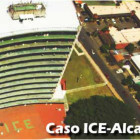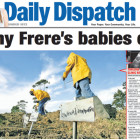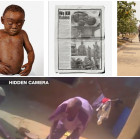Giannina Segnini (Costa Rica)
Giannina Segnini, investigative reporter from Costa Rica, describes how her team investigations put two former president under the magnifying glass and why democracy should not be taken for granted.
Investigative Impact (https://impact.gijn.org/2014/10/page/3/)
Giannina Segnini, investigative reporter from Costa Rica, describes how her team investigations put two former president under the magnifying glass and why democracy should not be taken for granted.
Nedim Sener, investigative journalist from Turkey, talks about the government persecution he’s facing in his country and why the people right to know should be protected.
Roman Shleynov, investigative reporter at Vedemosti Business Daily, talks about investigative journalism in Russia today, and details a cross-border investigation into gas giant Gazprom.
Marcela Turati, investigative journalist at Proceso magazine, talks about what drives her to do in-depth reporting, and the importance of having a watchdog press in Mexico.
Mzilikazi wa Afrika, investigative journalist at the Sunday Times, talks about the intimidation, kidnapping, and threats he suffered in 2010, after exposing police wrongdoing.

When Lindsay Green-Barber took a job as the at the Center for Investigative Reporting’s media impact analyst, she was struck by the difference between the way two stories were received.

In the Brazilian state of Parana, home to 10 million people, the Gazeta do Povo newspaper and RPC TV spent two years building a database on public spending by the state legislative assembly. Over the course of its investigation, the team found that the assembly had systematically pilfered as much as $400 million in public funds. Their findings set off a firestorm of protest and reform.

The investigative team at La Nación newspaper in Costa Rica, led by veteran journalist Giannina Segnini, had earned international attention for the strength of its reporting. Segnini had helped introduce data journalism across Latin America, and her team had won their share of prizes for digging into crime and corruption. But even they were surprised when they began following the money trail of the former head of that nation’s social security administration.

What began with a mother’s complaint — that her baby died of negligence — mushroomed into an appalling exposé of conditions at a local hospital. Three reporters from the Daily Dispatch revealed hundreds of needless neo-natal deaths at Frere Hospital, in Eastern Cape in South Africa. In a series published in 2007, the team reported that alarming numbers of newborns were dying at the hospital, caused by a litany of abject conditions: negligence, staff shortages, incompetence, equipment shortages, and poor infection control.

Spirit Child is an in-depth investigation into the ritual killing of disabled Ghanaian children deemed to be possessed by evil spirits. They are killed with a poisonous drink by village elders known as “concoction men.” Sometimes, babies born at the same time as a family misfortune were also accused of being “spirit children” and similarly done away with.